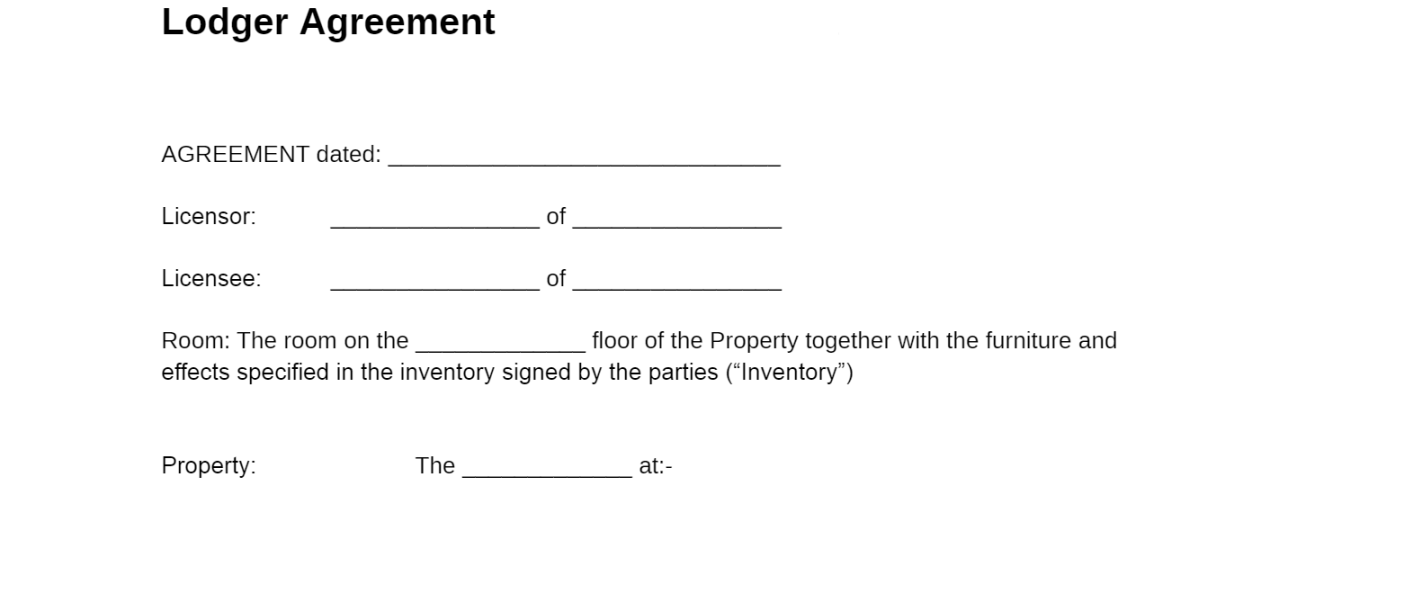A well-structured Lodger Agreement is a crucial document that outlines the terms and conditions between a landlord and a lodger. It ensures a clear understanding of rights, responsibilities, and expectations, fostering a harmonious living arrangement. While legal advice is recommended, creating a professional and legally sound template can be achieved through careful consideration of key elements.
Essential Elements of a Lodger Agreement
1. Parties Involved

Image Source: lofti.co
Landlord: Clearly identify the landlord’s full legal name and address.
2. Term of the Agreement
Start Date: Define the specific date the agreement commences.
3. Rent and Payment Terms
Rent Amount: Specify the monthly rent amount in clear figures.
4. Deposit
Deposit Amount: Specify the required deposit amount.
5. Use of the Property
Permitted Use: Specify the intended use of the property (e.g., residential).
6. Utilities and Services
Utility Responsibilities: Clearly define who is responsible for paying utility bills (landlord or lodger).
7. Maintenance and Repairs
Landlord’s Responsibilities: Specify the landlord’s obligations for maintaining the property’s structure and systems.
8. Insurance
Landlord’s Insurance: Specify whether the landlord has property insurance and if it covers the lodger’s belongings.
9. Governing Law
10. Dispute Resolution
Designing a Professional Template
To create a professional and visually appealing template, consider the following design elements:
1. Clear and Concise Language
Use plain language and avoid legal jargon.
2. Consistent Formatting
Maintain consistent font styles, sizes, and colors throughout the document.
3. Professional Layout
Employ a clean and professional layout.
4. Professional Branding
Include your company logo or a professional header.
5. Legal Review
Additional Tips for a Strong Lodger Agreement
Be Specific: Avoid vague language and provide clear details.
By following these guidelines and incorporating the essential elements, you can create a comprehensive and professional Lodger Agreement that protects the interests of both the landlord and the lodger.